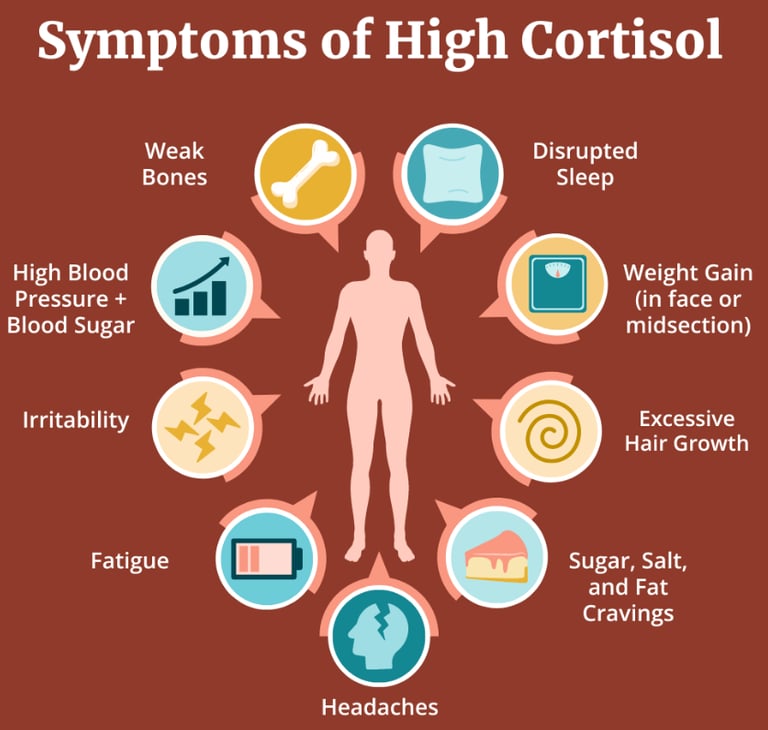High Cortisol: 11 Unexpected Signs and How to Regain Balance
Discover 11 surprising signs of high cortisol levels, potential causes, and solutions to manage your stress and improve your well-being.
WELLNESSBLOG-LISTHEALTH
2/21/20252 min read


Cortisol, our stress response hormone, is vital, but too much can disrupt our balance. Beyond the classic symptoms, some unexpected signs may reveal excessively high cortisol levels. This article explores these warning signals and guides you toward a return to equilibrium.
Summary:
What is cortisol, and why does its level increase?
11 unexpected signs of high cortisol levels
Common causes of high cortisol levels
Consequences of high cortisol on health
Strategies to manage stress and reduce cortisol
FAQ
Conclusion
In short:
High cortisol can manifest in surprising ways: bad breath, digestive issues, excessive sweating, hair loss, skin problems, sleep disturbances, excessive hair growth, scalp flaking, a constant need to clear the throat, oily hair, and excessive burping. Identifying these signs and understanding the underlying causes is crucial for taking action.
What is cortisol, and why does its level increase?
Cortisol is a steroid hormone produced by the adrenal glands. Its release is triggered by stress, whether physical, emotional, or psychological. It plays a vital role in regulating energy, metabolism, the immune system, and the inflammatory response. However, prolonged exposure to stress can lead to excessive cortisol production.
11 unexpected signs of high cortisol levels:
Persistent bad breath
Digestive problems (constipation, diarrhea, bloating)
Excessive sweating and strong body odor
Hair loss or thinning hair
White or coated tongue
Night sweats
Appearance of dark hairs on the chin (in women)
Scalp flaking (dandruff)
Frequent need to clear the throat
Oily hair
Excessive burping
Common causes of high cortisol levels:
Chronic stress (work, relationships, finances)
Lack of sleep
Poor diet
Certain medical conditions (Cushing's syndrome)
Taking certain medications
Genetic factors
Consequences of high cortisol on health:
Chronically elevated cortisol can have devastating effects on health: weight gain, sleep disturbances, fatigue, irritability, anxiety, depression, skin problems, high blood pressure, weakened immune system, digestive issues, hormonal problems, and an increased risk of chronic diseases.
Strategies to manage stress and reduce cortisol:
Stress management: Relaxation techniques (meditation, yoga, deep breathing), therapy, creative activities.
Lifestyle: Adequate sleep, balanced diet, regular physical activity.
Social support: Spend time with loved ones, talk about your problems.
Medical consultation: If symptoms persist, consult a doctor for diagnosis and appropriate treatment.
FAQ:
How to measure cortisol levels? A saliva or blood test can be prescribed by your doctor.
What foods to favor or avoid? Favor whole foods, rich in fiber and nutrients. Limit caffeine, alcohol, refined sugars, and processed foods.
Conclusion:
The signs of high cortisol can be varied and sometimes surprising. Being attentive to these signals, understanding the possible causes, and adopting stress management strategies is essential to regain hormonal balance and preserve your health. Do not hesitate to consult a healthcare professional for personalized support.
